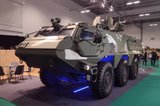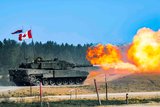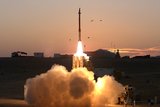ATK wins $204 million in munitions contracts
ATK will supply non-US standard ammunition (NSA) to the US Department of Defense in support of international allies. The awards, received in August and September 2014 under ATK's Indefinite Delivery/Indefinite Quantity and Basic Ordering Agreement contracts, are worth a combined $203.7 million.
The contract will see ATK supply supply a range of ammunition and munition products under the NSA programme, for which ATK has been a supplier since its inception.
Kent Holiday, vice president and general manager, small caliber systems, ATK, said: ‘We are honoured to support our army customer in every facet of ammunition requirements they may have, and these significant awards will continue ATK's legacy of commitment and performance to the US Army NSA programme.
Mike Kahn, president, ATK's Defense Group, added: ‘ATK's ability to satisfy varied munitions needs provides a strategic advantage to the United States as it supports its allies across the globe.’
More from Land Warfare
-
![CAVS rides a wave and prepares for surge requirements as orders roll in]()
CAVS rides a wave and prepares for surge requirements as orders roll in
The Common Armoured Vehicle System is continuing to rack up orders as the British Army looks likely to become an operator of the vehicle, while Italy and Ireland are also contenders.
-
![US DoD task force’s DroneHunter acquisition lays groundwork for Replicator 2 CUAS strategy]()
US DoD task force’s DroneHunter acquisition lays groundwork for Replicator 2 CUAS strategy
As the US Department of Defense looks to counter the growing threat of uncrewed aerial systems to improve homeland security, the DroneHunter acquisition could point to future commercial innovation.
-
![Land forces review: Tanks, trucks and IFVs dominate but woes remain for Ajax]()
Land forces review: Tanks, trucks and IFVs dominate but woes remain for Ajax
This year has begun with main battle tanks taking the lead while orders for large logistics and support vehicles continued from last year. Additionally, two of the British Army’s most significant contracted vehicle programmes, Ajax reconnaissance vehicle and Challenger 3 tank, continued to make news in January.
-
![Canada looking to expedite purchase of armoured fighting vehicle and a new tank]()
Canada looking to expedite purchase of armoured fighting vehicle and a new tank
Canada is improving its Leopard main battle tank fleet but before this is fully completed, it is expected to begin looking for new vehicles.
-
![Layered protection: How air defence is adapting to rising drone and missile threats (podcast)]()
Layered protection: How air defence is adapting to rising drone and missile threats (podcast)
A surge in aerial threats – from advanced missiles to low-cost drones – is reshaping the way militaries approach air defence, driving demand for flexible, multi-layered solutions.























